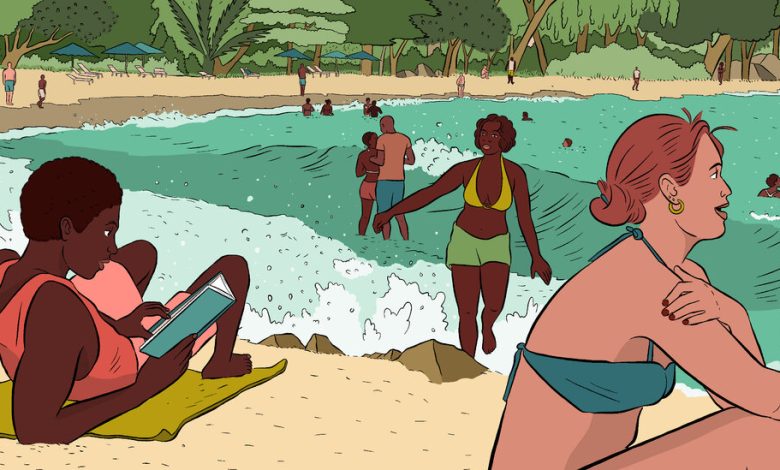Read Your Way Through Accra

Read Your Way Around the World is a series exploring the globe through books.
Accra is rich with stories, some of them only a few words long — Still Hustling; Work Hard and Dream Big; Short Ways Are Dangerous — and written in bold letters on the rear windows of tro tros, the ubiquitous minibuses that ferry residents and visitors around the city. These mantras are meant to represent the people who own the buses. But they also tell of life in Accra, and what it takes to make it in this vibrant city.
Accra, Ghana’s capital, is in the southern part of the country and borders the Atlantic Ocean. For centuries, its coastline has served as an entry point for people both from neighboring countries and from farther away. Ghanaian writers have found rich material in the city, the home of the Ga people. And writers from other African countries and the diaspora, such as Wole Soyinka and Maya Angelou, have called Accra home, even if only for a short time.
Though much of Accra’s creative activity has taken place in centers like the Institute of African Studies at the University of Ghana, interest in stories and books permeates the city.
Merchants selling books line many thoroughfares. There is a good chance that, when you stop at a major traffic light, a bookseller, wares in hand, will come to your window and try to get you to buy at least one. Even bus stations can be a treasure trove. One of my favorite activities as a teenager was shopping for books at Kwame Nkrumah Circle, a busy bus station in the heart of the city, where volumes are neatly arranged in stalls or on canvas spread out on the ground. And when I didn’t have enough money for a book, Accra still came through for me: I could always read and imagine the stories behind the one-liners on the buses idling nearby.
What should I read before I pack my bags?
Nii Ayikwei Parkes’s “Tail of the Blue Bird” brings the city to life. This slim novel is set in Accra and Sonokrom, a small village. Kayo, a forensic pathologist working in Accra, has been forced by a high-ranking police officer to investigate a sinister discovery in the village.
The novel’s lyrical prose and rich dialogue, which incorporates Ghanaian words and phrases, make it delightful to read. Through Kayo’s work, outings with friends and encounters with the police, we see different aspects of life in Accra, while his time in Sonokrom and interactions with the village’s intriguing inhabitants offer a glimpse of how people outside the center relate to the city.